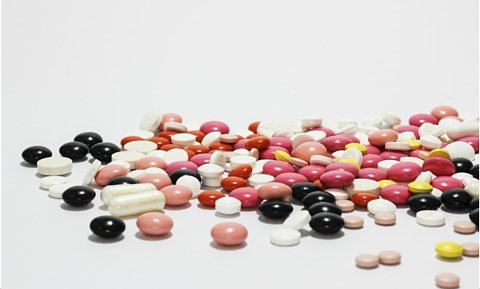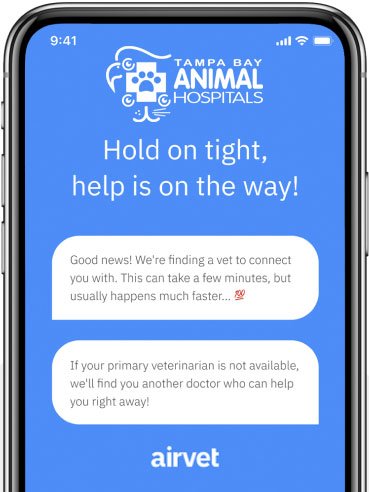Are over-the-counter medications safe for my dog?

Our dogs are part of the family. They keep us company, play games with us, and provide emotional support. In other words, they are almost human, so it’s understandable that we reach for human medications when they feel poorly. Before you share the contents of your medicine cabinet with your dog, here are some tips regarding common over-the-counter medications.
1. Antihistamines. Benadryl (diphenhydramine), Zyrtec (cetirizine), and Claritin (loratadine) are commonly used antihistamines that relieve allergy symptoms or counteract allergic reactions. Antihistamines are usually safe but make some dogs drowsy and others hyperactive. OTC antihistamine preparations may contain other ingredients such as decongestants that are not safe for dogs. Read the label carefully to assure that the product only contains antihistamine.
2. Tylenol, Ibuprofen, buffered aspirin. Tylenol (Acetaminophen) and Ibuprofen are not safe for dogs. EVER! Buffered aspirin is a bit safer but even the coated tablets may upset your dog’s stomach. Aspirin has also been associated with increased bleeding risk. If your dog is achy, feverish, or shows signs of arthritis, ask your veterinarian for an anti-inflammatory medication specifically designed for dogs.
3. Dramamine. Used to combat motion sickness, Dramamine is relatively safe and can be used if you are in a pinch, but there are canine-specific medications that work faster and last longer.
4. Hydrogen peroxide. An oldie that’s a good addition to any first aid kit. Hydrogen peroxide can be used topically to clean out a superficial flesh wound and can also be given orally to induce vomiting if your dog ingests something he shouldn’t (i.e., your medications, rodenticides, toxic plants). Vomiting may cause more harm than good, so call your veterinarian before you give your dog an oral dose of hydrogen peroxide.
5. Pepto-Bismol. This common medicine cabinet occupant can be dosed at 1 teaspoon for 5-10 pounds of body weight to treat both diarrhea and vomiting. But if your dog vomits up the Pepto-Bismol, call your veterinarian.
6. Imodium. This medication is a good treatment for diarrhea and should be safe for your dog if dosed at 1 mg per 20 pounds of body weight. Only give one dose. If the diarrhea isn’t resolved, check with your veterinarian. Accurate diagnosis of the cause will allow targeted treatment of the problem.
7. Kaopectate. Here’s another anti-diarrheal that’s pretty safe and also soothes upset stomachs. But at a dose of 1 ml per pound a large dog has to swallow a lot of Kaopectate!
8. Cough medications. Many OTC cough preparations contain ingredients that are relatively safe for dogs; however, coughs may be a sign of a more serious problem like heartworms, cardiac disease, or respiratory infections. It’s best to have your coughing dog examined before giving a human preparation.
9. Pepcid AC (famotidine) and Tagamet (cimetidine). These medications are used by lots of people to treat or prevent heartburn. They work on dogs, too. By decreasing the production of gastro-intestinal acids, they can make both dogs and dog owners feel better. So, if your dog grabs your bag of potato chips and gets a tummy ache, reach for one of these OTC preparations. It’s OK to use them intermittently for dietary indiscretions, but if your dog’s stomach issues persist, see your veterinarian.
10. Artificial tears. If your dog squints or blinks excessively, he may have dry eyes or could have a bit of dust or debris in them. Even the tiniest speck in your eye is annoying and dry eyes are irritating. Sometimes a little lubricating eye drop is just the ticket to make those peepers feel more comfortable. But if your dog continues to squint or blink, bring him to the doctor right away. He may have an eye infection, a scratch on his cornea, or a foreign body that needs to be removed. Also, if his eyes look red or swollen, or if you notice a discharge, see your veterinarian immediately. Quick response time will relieve your dog’s discomfort and may prevent permanent vision loss.
11. Steroid sprays, gels, and creams. OTC steroid preparations contain a lower percentage of active ingredients than prescription steroids and are usually very safe. The upside is that they decrease the itchiness of insect bites and hot spots. The downside is that steroids can delay healing especially if the wound is infected. If your dog’s booboo doesn’t look better after a couple of applications, have it evaluated.
12. Topical antibiotic ointment. Neosporin is a common topical antibiotic used on minor cuts and scrapes. This ointment is pretty safe in dogs and should be in every first aid kit. Verify that the ointment only contains antibiotic and not steroids, which can actually delay healing. Make sure to clean your dog’s wound before applying the antibiotic ointment and cover the wound so your dog doesn’t lick the medicine off.
13. Anti-fungal sprays, gels, and creams. Most fungal infections are too complicated to be successfully treated with OTC products; however, you may use them until you can get your dog to a veterinary clinic. Since some fungal infections can be transmitted from pets to humans, it’s doubly important to treat them quickly and effectively.
14. Mineral oil. This relatively benign liquid has a variety of uses. You can place a couple of drops in your dog’s eyes before giving him a bath to avoid irritation from soap. You can also give it orally to relieve minor bouts of constipation. If your dog doesn’t have a bowel movement within 24 hours, if he starts vomiting, or if he exhibits pain, consult your veterinarian.
Check in before you check out at the drugstore.
It’s best to talk to your veterinary health care professional before giving any over-the-counter medications to your dog for several reasons. First, since human and canine doses are different, you need to ask about the correct amount to administer. Secondly, drug interactions can be dangerous so your veterinarian should review your dog’s medical record to prevent any adverse events. It’s unwise to be lulled into a false sense of security by assuming that drugs are safe just because they can be purchased without a prescription. Please contact us if you have any questions.
- Behavior (11)
- Caring for your pet (263)
- cat (4)
- Community Events (19)
- dog (6)
- From Our Clients (15)
- Happy Tails (8)
- News (418)
- Press (53)
- Products (2)
- Questions (4)
- Recalls (1)
- Special Offers (5)
- Tips & Advice (231)
- Uncategorized (19)
- Veterinary Services (48)


